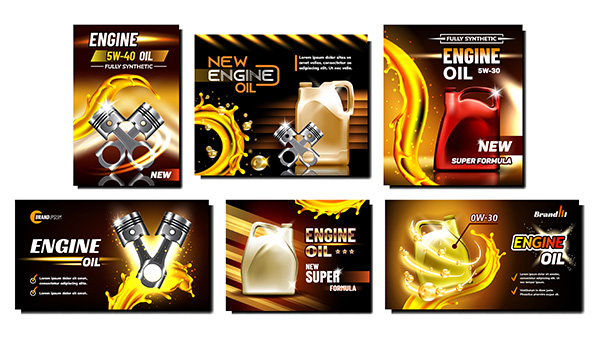
Choosing engine oil used to be simple. Today, there are multiple viscosities, synthetic and conventional options, and specification codes that look like alphabet soup. The wrong choice can lead to noisy cold starts, timing problems, or deposits that build up quietly. The right oil helps your engine last longer, run smoother, and stay efficient. Here is how to pick correctly without the guesswork.
Viscosity Numbers Are Not Just Labels
The numbers on the bottle, such as 0W-20 or 5W-30, describe how the oil flows when cold and when hot. The first number with the W indicates cold start behavior. A lower first number flows faster on cold mornings, which helps protect parts during the first seconds after startup. The second number indicates thickness at operating temperature. Too thin when hot and the oil film can shear, too thick when cold, and it reaches moving parts too slowly.
Your owner manual or oil cap lists a specific grade for your engine. Stick to it unless a manufacturer bulletin or an approved alternate is clearly documented. Guessing a thicker grade for “extra protection” often backfires by slowing cold flow and upsetting variable valve timing.
Specifications Matter as Much as Viscosity
Modern engines are built around specific oil chemistry. Automakers publish specs that go beyond viscosity, such as API SP, ILSAC GF-6, ACEA ratings, or brand-specific approvals. These codes define detergent levels, anti-wear additives, oxidation resistance, and fuel economy targets. Two bottles with the same viscosity can perform very differently if the spec does not match.
Direct injection and turbocharged engines, in particular, need oils that resist low speed pre-ignition and deposit formation. Using a generic oil that lacks the correct approval can lead to noisy operation, sticky rings, and premature timing system wear, even if the viscosity is right.
Synthetic vs Conventional vs Blends
Synthetic oil is engineered for better stability under heat and improved cold flow. It resists oxidation, keeps deposits in check, and often allows longer service intervals when the vehicle manufacturer permits it. Conventional oil meets baseline requirements but can break down faster under high heat or heavy loads. Blends sit in the middle.
If your manual specifies synthetic, do not substitute conventional oil. If it allows either, synthetic still offers better protection for severe service such as short trips, frequent idling, towing, or hot climates.
Additives Do Real Work Behind the Scenes
Detergents keep sludge in suspension. Dispersants prevent particles from clumping. Anti-wear agents such as zinc and phosphorus protect under high pressure. Friction modifiers improve efficiency. Too much or too little of any one additive can cause trouble. For example, high levels of certain additives can damage emission control components if the engine was not designed for them.
This is why “universal” or racing oils are poor choices for daily drivers unless the bottle explicitly shows your vehicle’s approval. Racing formulas often lack detergents for short use intervals, while universal products may not meet the shear stability or low speed pre-ignition limits your engine requires.
Oil Life Monitors Do Not Replace the Right Oil
Many vehicles display long change intervals. Those reminders are based on algorithms that estimate conditions, not a lab analysis of the oil in your engine. If your driving is mostly short trips or stop-and-go, moisture and fuel dilution build up faster. In those cases, using the exact approved oil matters even more, and a shorter time based interval can be smart.
Common Myths That Lead to Problems
- Thicker oil is always better: not true. It can slow flow and reduce variable valve timing response.
- Additives fix everything: extra bottles can upset a carefully balanced oil package.
- All synthetics are the same: quality and specifications vary. Match the approval your engine calls for.
- Color equals quality: dark oil can be normal. Follow the interval and spec instead of judging by appearance.
What If You Need to Top Off Between Changes
Topping off is fine, but it should be with the same viscosity and an oil that meets the same approval. If you are unsure what was used, check your last service receipt or ask the shop to confirm. Mixing brands is less important than matching the specification. If the engine needs frequent top-offs, ask for a quick inspection to rule out leaks or consumption that could point to valve cover gaskets, PCV issues, or worn seals.
How We Select Oil for Specialized Engines
Some vehicles need brand-specific approvals for timing chain protection, turbo coking resistance, or particulate filter compatibility. European models often require ACEA and OEM approvals. Many Asian models specify low viscosity oils that support tight bearing clearances and high efficiency valve timing. Using a generic 5W-30 that lacks those approvals may lead to rattle on start-up, cam timing codes, or deposits that develop over time.
Engine Oil Service in Covina That Matches Your Exact Spec
The best oil for your engine is the one that meets both the viscosity and the manufacturer's specification shown for your vehicle. That is how you get quiet cold starts, steady oil pressure when hot, clean internals, and the longest component life. If you are uncertain, bring the VIN so the correct approval can be verified before the bottle is opened.
Protect Your Engine with TL Motors in Covina, CA
At TL Motors, we match oil to your exact viscosity and specification, install a quality filter, and set a service interval that fits your driving. If your engine is turbocharged, directly injected, or has brand-specific approvals, we stock the right formulas so you do not have to guess.
Schedule an oil service today and keep your engine protected mile after mile.